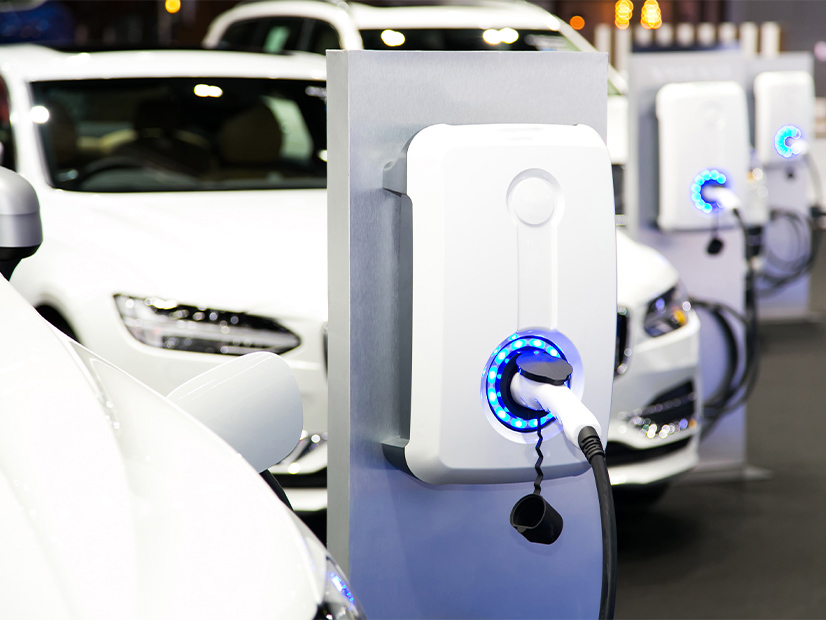Public Service Enterprise Group is seeing “slow but steady” electric vehicle growth in New Jersey but has yet to turn down any interconnection requests for EV chargers to handle the increase, CEO Ralph LaRossa said in the utility’s second-quarter earnings call July 30.
“We have the capacity,” he said. “But we’re upgrading that last mile. So that’s really playing out exactly the way we expected it to.”
Because of the unique “condensed nature of our housing and our commutes” in New Jersey, he said, EVs “have not had the same challenges and pressure that maybe the rest of the country has seen as far as the expansion that was expected.”
New Jersey last year put an additional 62,426 new EVs on the road, a 68% increase over 2022, which has prompted some advocates to suggest the state is in reach of its goal of having 330,000 EVs in the state by 2025. The rise occurred as some analysts say EV uptake elsewhere around the nation is slowing.
The New Jersey Coalition of Automotive Retailers says the state’s affluent population is less bothered than drivers in some states by the higher price of an EV, but the organization is skeptical the target can be reached. (See NJ EV Incentives Target Low-income Buyers.)
LaRossa said the rise in EV charging, along with growing interest from developers in putting data centers in the state, “is expected to drive load growth and system investment in these in the future.” Responding to a question from an analyst, he said he sees little risk in investing for continued EV growth, even if former President Donald Trump is re-elected.
“The only question, and we’ve talked about this before, is will you have 100% EVs by 2035, or will we get a 50% on that test?” he said. “And a 50 on that test is still going to be quite a bit of market penetration for the electric vehicle industry here.”
Data Centers
LaRossa said the utility is heavily focused on positioning itself to take advantage of interest from data centers in locating in the state, and especially those interested in co-locating next to the three nuclear plants owned and operated by PSEG in South Jersey.
He said the utility has “experienced an increase in new business requests and feasibility studies from potential data center customers across our service area compared with 2023 activity, which, combined with increased electric vehicle charging, is expected to drive load growth and system investment in these in the future.”
PSEG takes proposals seriously once the developer has moved beyond the engineering phase, he said. He added that “we’re seeing several hundred megawatts of data centers that are moving into that scenario here in New Jersey,” and two or three times as many projects that are in earlier stages.
LaRossa noted that Gov. Phil Murphy (D) on July 25 signed a law (S3432/A4558) creating a $500 million program to offer tax credits to encourage artificial intelligence companies to locate in the state.
He said a co-located data center has two benefits for the state’s economic development ambitions.
“It’s not necessarily just that it’s co-located,” he said. “It’s the fact that it’s a hyperscale data center. It’s going to provide a clear signal to AI companies that are looking to locate here in New Jersey and in the region, that the infrastructure is here up and running and ready to go for their businesses to thrive,” he said.
Talen Controversy
LaRossa said his attitude has not changed in response to the recent controversy over Talen Energy’s deal to divert capacity from its Susquehanna Nuclear Plant to serve a data center on the same site.
The project, which Talen developed next to its northeastern Pennsylvania plant and sold to Amazon Web Services, has drawn protests at FERC from parties who argue that it could siphon power meant for other clients, shifting costs and threatening reliability. (See Talen Energy Deal with Data Center Leads to Cost Shifting Debate at FERC.)
“That’s not shifting us in any way, shape or form,” LaRossa said, adding the utility will be guided by its commitment to supporting Murphy’s economic development plans.
“I will say this to you. I’m a little bit concerned about co-located load as it impacts other industries,” he said. “If you really think about co-located load, that doesn’t just apply to data centers. That’s for combined-heat-and-power plants; it’s for cogeneration units.
“So, depending upon where this goes, while I’m concerned about data centers, I’m just as concerned about everything from rooftop solar behind the meter to cogeneration that might be taking place.”
Still, he added in response to a question from an analyst, whatever outcome emerges from the Talen case would not affect, or even delay, any proposal that might emerge for co-locating a facility next to PSEG’s three nuclear plants.
“Every deal is going to be very specific. I think the way our nuclear facilities are configured will be different than a nuclear facility down the street.” he said. “So, each one of those will be looked at differently, whether it’s by PJM, in its current rules that coexist for co-located load, or FERC when they come out with some sort of a process, if they do under the current challenge that’s there.”
PSEG’s second-quarter results this year fell short of those in 2023. The company reported net income of $434 million ($0.87/share), compared with $591 million ($1.18/share). It brought in about $2.4 billion in total revenue during the quarter, a slight increase over last year.



